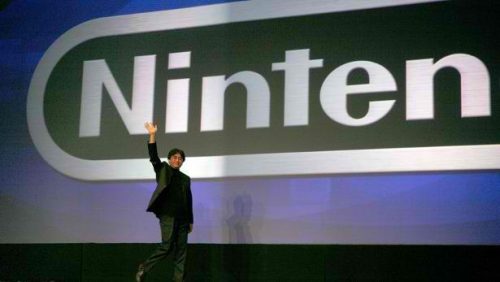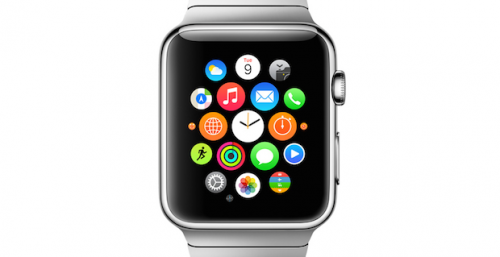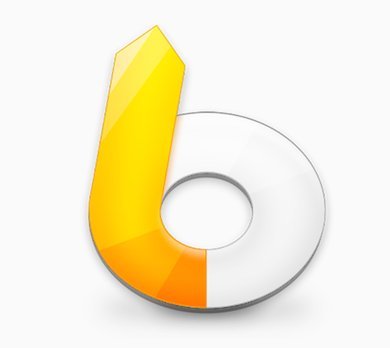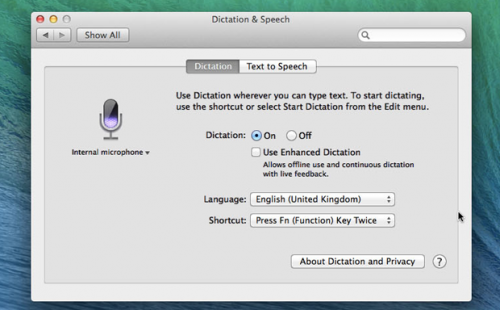Rounded Rectangles: Despite No-Show, Apple’s Impact on CES As Strong As Ever
Now that the booths have been broken down, the awards have been handed out and the last bit of per diem has been fed into a slot machine at McCarran International Airport, there’s a general sense that something was missing from CES. Somehow, among the thousands of exhibitors, products and prototypes, the biggest splash was a television that few consumers could afford and a keynote presentation that the greatest minds in tech journalism are still trying to figure out.
It’s no secret that the giants of technology are nowhere to be found. Even Samsung — the makers of the aforementioned 4K TV, which just so happens to come with its own scaffolding — left all of its new Android handsets back in Korea. Google’s only presence, three years after essentially taking over the show with its Nexus One, is some guy wearing Google Glass.
So what gives? How is it that at the largest electronics convention in the world, there wasn’t a Kindle phone or at least a new Android tablet to mock?
CES, over the past few years, has become less a trade show and more a weeklong festival of one-upmanship that’s become so cutthroat, you can barely tell real products from prototypes. Microsoft arguably played a pretty big role in this, cramming its keynotes with flights of fancy, imagining a not-so-distant future filled with betas and vaporware. Some eventually shipped, most didn’t, but the spectacle was the star — in stark contrast to the Apple-headlined Macworld, where actual products made actual impact and were actually sold.
Macworld was a standing January event until Apple, in a fairly unprecedented move, abruptly pulled out of the expo in 2009, saying that its retail stores and Web presence had made trade shows “a very minor part of how Apple reaches its customers.” That may be true, but the annual Macworld-CES tandem still set the tone for the year, a post-holiday grab bag of goodies we all looked forward to watching. Basically, Apple showed off its latest creation, and the rest of the industry scrambled to keep up.
So it’s no surprise that Apple led the way to the door, too. Steve Jobs’ last great keynote, the mesmerizing 2007 introduction of the iPhone, came just two days after Bill Gates’ own CES presentation, a vague, unceremonious affair that focused on “connected experiences” and a loose map of the “digital decade.” The disappointing Vista was just about ready to launch, and people were ready for something new. Gates didn’t give it to them (though he did show off a kitchen and aquarium in the Microsoft Connected Home of the Future). Jobs, as usual, delivered.
here was no way to top the iPhone, let alone its introduction. Since Apple never played the game of prototypes, all eyes were on Jobs every January to outdo the hype with his latest creation. As the head of a software company at a hardware show, Gates never received such pressure.
So, even though Macworld was miles away from CES, Apple stole the show. And in a way, it still does.
When Microsoft announced 2012 would be its last CES, it blamed product cycles that “generally don’t align with the show’s January timing.” Perhaps, but it’s no coincidence that the decision came not long after Apple’s own departure. In a way, Apple took pressure off Microsoft to make a big splash at CES; once Microsoft didn’t have its old rival to steal the spotlight, its whimsical keynotes seemed flimsier than ever.
The same is true with Google and Amazon. Apple raised the bar so high with its January announcements, nothing short of astounding will do. Now, no one seems to care if a product is shipping, or even if it has a suggested retail price; the only things that matter are the “oohs” and “aahs” elicited from each booth. Hence Samsung’s outrageous TV. It’s not like the easel design is going take off, but it got people talking, it made headlines, and it was one of the must-see attractions of the CES circus.*
If CES was underwhelming, it’s down to a simple case of follow-the-leader. There were certainly thousands of exhibitors last week, all dreaming of being the next Apple or Google as they polished their handle-with-care one-offs with the hopes of making enough noise to get noticed.
For years, Apple did it better than anyone else. But now that Cupertino is silent during CES, no one wants to even try.






